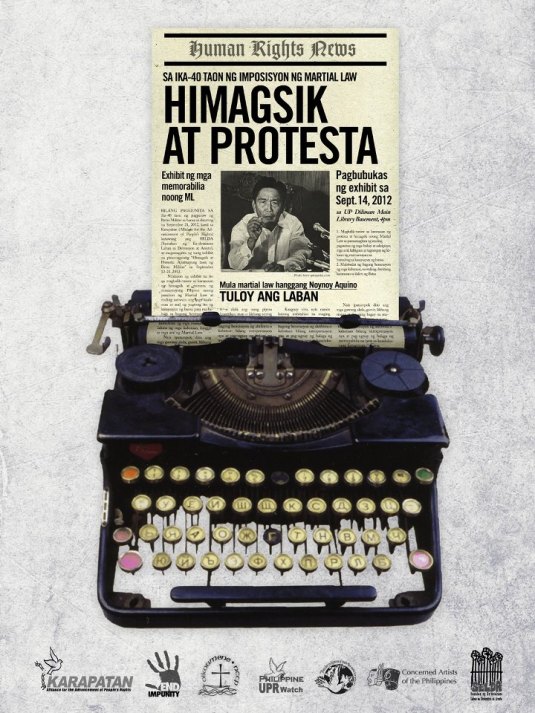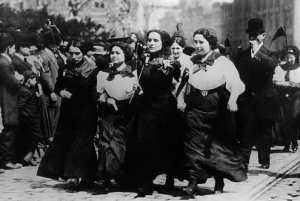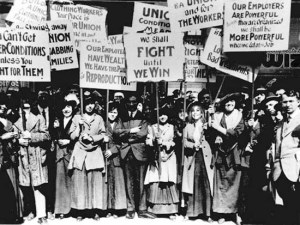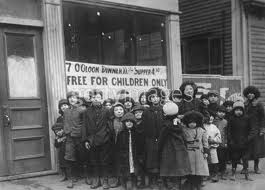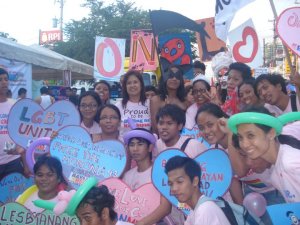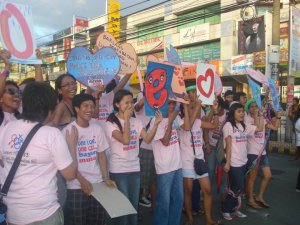Postscript to the 2017 UPR on the Philippines, July 2017
by Philippine UPR Watch
Introduction
The Philippine UPR Watch, a network of faith-based, human rights and people’s organizations engaging in the Universal Periodic Review (UPR) process of the United Nations Human Rights Council (UNHRC), submitted a total of seventeen (17) individual submissions and four (4) joint submissions as alternative reports to the 3rd cycle of the UPR of the Philippines. The network has also consented to include its documentation of several key cases in the submissions of two other international non-governmental organizations.
In the months prior to the 27th session of the UNHRC for the UPR, the network has actively campaigned on numerous human rights issues during the period under review, including the continuing extrajudicial killings in line with the State’s counterinsurgency program and the war on drugs. It has actively engaged with diplomatic missions in the Philippines and in Geneva, Switzerland to present an alternative picture of the human rights situation in the country, as well as propose key recommendations with regards to the adherence of the Philippine government to international human rights instruments.
During the UPR sessions in May 2017, Philippine UPR Watch has mounted advocacy activities, side events, exhibits, meetings and dialogues with international NGOs and other stakeholders in the UPR process. Parallel actions have been conducted in the Philippines.
The efforts of the Philippine government, both during the administrations of Benigno S. Aquino III and Rodrigo Roa Duterte, to twist facts regarding extrajudicial killings and other rights violations in the country have been exposed to the international community. Many States raised concerns on the continuing extrajudicial killings in the country, on the continuing attacks against human rights defenders and journalists, on enforced disappearances by State security forces, while many States were alarmed on the reimposition of the death penalty, lowering of age of criminal responsibility, cases of torture, human trafficking, violations on due process, rights of indigenous peoples, migrants, persons with disabilities, women and children’s rights, sexual and reproductive rights, and overcrowding in prisons.
This follow-up document is published by the Philippine UPR Watch to serve as the general public’s guide in monitoring the compliance of the Philippine government to key recommendations of State parties and to international human rights instruments. This publication also contains the network’s analysis on the initial outcomes of the 3rd cycle of UPR on the Philippines, prior to the September 2016 HRC session where these outcomes will be formalized as reports by both the Philippine government and the UNHRC. The network also reiterates in this document the crucial recommendations, which may not have been forwarded by States, to serve as guideposts in pursuing State accountability on the numerous human and people’s rights violations in the Philippines.
Summary and highlights of the recommendations of States to Philippine government during the 3rd cycle of UPR on the Philippines
A total of 103 State parties forwarded at least 257 recommendations to the Philippine government during the 27th session.
Key recommendations by States include the following:
- At least thirty-four (34) States raised concerns on the continuing extrajudicial killings in the country and reminded the Philippine government to ensure prosecution and accountability of perpetrators. Eight (8) States called for an end to extrajudicial killings in line with the Duterte administration’s campaign against crime and drugs.
- Fourteen (14) States expressed concern that enforced disappearances continue, with nine (9) States calling for the Philippines’ ratification and implementation of the International Convention for the Protection of All Persons from Enforced Disappearance.
- Twelve (12) States recommended the end of the practice of torture, while three (3) States called for an end to illegal arrests and detention perpetrated by State security forces.
- Fourteen (14) States recommended that human rights be upheld in the fightagainst drugs, while two States called for end of torture in line with war against drugs. At least five (5) States called for comprehensive andhuman centered approaches for its anti-illegal drug policy, particularly the provision of appropriate health measures, rehabilitation and reintegration of drug users and by addressing the root cause of illegal drugs through development.
- Eleven (11) States raised concerns on the attacks against human rights defenders and called for the protection of their rights. Slovakia particularly recommended that the Philippine government stop the implementation ofcounter-insurgency programmes that target humanrights defenders and civilians. Meanwhile, eight (8) States called on the Philippine government to protect freedom of opinion and belief, and to promote media freedom and the rights of journalists.
- Twenty-one (21) States appealed against the reinstitution of the death penalty or capital punishment, while ten (10) States raised concerns on proposed legislation and policies lowering the minimum age for criminal accountability.
- Eight States called for the reduction of poverty in the country. Seventeen (17) States raised concerns on continuing human trafficking, while four States called for protection of migrants’ rights.
- Seventeen (17) States recommended to the Philippine government to ensure laws, policies and programs on women’s rights and that these conform to the UN Convention on the Elimination of All Forms of Discrimination against Women, and to put an end to violence against women. Five (5) States called for the promotion and respect for sexual and reproductive rights.
- Twenty-four (24) States called on the Philippines to respect the rights of children against sexual abuse, their right to education and against all forms of violence.
- Five (5) States recommended the promotion and respect of indigenous people’s rights, with Peru calling on the Philippine government to take necessary measures to preserve the ancestral lands of the indigenous peoples.
- Three (3) States called on the Philippine government to take steps to meet the minimum standards for the treatment of prisoners, including the provision of separate cells for children and improvement of detention facilities against overcrowding.
- Two States called for the invitation of all Special Procedures with pending requests, while eight States recommended for the invitation of the UN Special Rapporteur on Extrajudicial Killings.
| Recommendations on Key Issues |
Recommending States |
|
|
| Extrajudicial Killings |
Ireland, Costa Rica, France, Spain, Poland, Slovakia, Netherlands, Canada, Ghana, Norway, Bulgaria, Portugal, Switzerland, Australia, Iceland, Ghana, Croatia, US, UK, Luxembourg, Slovenia, Austria, Hungary, Czechia, New Zealand, Sierra Leone, Zambia, Estonia, Germany, Botswana, Canada, Chile, Netherlands, Sweden |
| EJKs in line with war against drugs |
Slovakia, Hungary, Iceland, Luxembourg, Czechia, New Zealand, Sierra Leone, Zambia |
| Enforced Disappearances |
Ireland, Costa Rica, Sudan, Poland, Slovakia, Netherlands, Lithuania, Canada, Germany, Chile, Uruguay, Norway, Ghana, Estonia |
| Ratification of ICPAPED
|
France, Angola, Iraq, Japan, Kenya, Montenegro, Sierra Leone, Uruguay, Portugal |
| Torture
|
Ireland, Costa Rica, Spain, Slovakia, Canada, Germany, Chile, Austria, Hungary, Angola, Georgia, Slovenia |
| Illegal Arrests and Detention
|
Costa Rica, Slovakia, Canada |
| Uphold Human Rights Standards in the Efforts against Crimes/Drugs |
Peru, Myanmar, Haiti, US, Portugal, Lebanon, Zambia, Timor-Leste, Egypt, Maldives, Guatemala, Estonia, Ireland, Italy |
| Comprehensive Social Policies to Address Drug Problem |
Romania, China, Thailand, France, Pakistan |
| Protection of Rights of Human Rights Defenders |
Denmark, Estonia, Germany, Hungary, Ireland, Luxembourg, Poland, Ukraine, UK, Norway, Slovakia |
| Protection of Rights of Journalists |
Lebanon, Lithuania, Estonia, Germany, Latvia, Luxembourg, Poland, Ukraine
|
| Death Penalty |
Haiti, Mozambique, Luxembourg, Slovakia, Liechtenstein, Moldova, Switzerland, Romania, Norway, Portugal, Ireland, Belgium, Lithuania, Czechia, Uruguay, Brazil, France, Italy, Australia, Canada, Bulgaria |
| Minimum Age of Criminal Responsibility |
Estonia, Kenya, Austria, Canada, Belgium, Sweden, Czechia, France, Germany, Bulgaria |
| Reduction of Poverty |
Uzbekistan, Saudi Arabia, Vietnam, Cambodia, Laos, Lebanon, Malaysia, Ecuador |
| Human Trafficking |
Azerbaijan, Lebanon, Belarus, Bosnia and Herzegovina, Cuba, Egypt, Indonesia, Sierra Leone, Poland, Maldives, Netherlands, Sri Lanka, Uganda, Uzbekistan, Botswana, China, Iraq |
| Rights of Migrants and their Families |
Sri Lanka, Vietnam, Indonesia, Nepal |
| Women’s Rights |
Cuba, Laos, Bosnia and Herzegovina, Brunei, Tunisia, Mexico, Canada, Iraq, UK, Yemen, Argentina, Chile, Honduras, Netherlands, Estonia, Gabon, Japan |
| Sexual and Reproductive Health |
Brazil, Denmark, Netherlands, New Zealand, Sweden
|
| Children’s Rights |
Algeria, Austria, Belarus, Belgium, Bosnia and Herzegovina, Botswana, Croatia, Estonia, Holy See, Italy, Kenya, Lebanon, Mexico, Montenegro, Morocco, Netherlands, Poland, Qatar, Republic of Korea, Slovakia, Spain, Tunisia, Uganda, Uruguay |
| Indigenous People’s Rights |
Cuba, Denmark, Laos, Peru, Tunisia |
| Overcrowding of Detention Facilities |
New Zealand, Republic of Korea, Uganda |
| Invitation to Special Procedures with pending requests for official visits |
Peru, Latvia |
| Invitation to UN Special Rapporteur on Extrajudicial Killings |
France, Germany, Ghana, Hungary, Latvia, Ireland, Lithuania, Bulgaria |
Analysis on the Outcomes of the UPR on the Philippines
For the third time, the Philippine Government goes through the Universal Periodic Review to check whether there have been improvements in the human rights situation and whether the recommendations under the previous two UPR sessions are complied with. The review covers the last four and half (4 and 1/2) years of the administration of President Benigno Simeon Aquino III and the first ten (10) months of the administration of President Rodrigo R. Duterte.
In the opening statement of its Report to the UPR Working Group of the United Nations Human Rights Council, the Philippine government affirmed its commitment to the “universality, indivisibility, interdependence, and inter-relatedness of all human rights, respectful of our unique national and regional particularities borne by our diverse historical, cultural, and religious backgrounds”. This affirmation does not fully reveal the reality on the human rights situation in the Philippines, and the Philippine government’s Report, as a whole, failed to implement the recommendations as contained in the 2008 and 2012 UPR.
The Philippine Government brags an economic agenda that is supposed to address various socio-economic concerns, and listed several legislations and other administrative and executive issuances to address issues like contractualization, minimum wage, unemployment and socialized housing. It also listed several actions designed to address the issues and concerns of the “vulnerable sectors” like women and children, including the issues of human trafficking. In the same Report, the Philippine Government denies the existence of a State policy that promotes, condones, sanctions or encourages extrajudicial killings (EJKs) of drug traffickers, criminals, or dissenters. The reality on the ground, however, is not reflective of this pronouncement.
Since the first two cycles of the UPR in 2008 and 2012, extrajudicial killings, torture, disappearance and other human rights violations remain unabated. To this date, no perpetrator of extra-judicial killings committed under present and past administrations (including Presidents Gloria Macapagal Arroyo and Benigno Aquino III) has been held accountable. Several military and police officials responsible for human rights violations were instead promotedto higher positions in the military and police. Socio-economic issues that affect socio-economic and cultural rights have not been fully addressed, and there have been no concrete steps towards this end.
The Philippine Government under both the Aquino and Duterte administrations cannot gloss over the following issues for which it is accountable:
- No concrete steps have been taken to address socio-economic and sectoral issues, including those involving the poor. There is no obvious difference between the economic agenda of the Aquino and the Duterte administrations. They focus on palliatives that do not address the root causes of poverty.
- To date, no genuine agrarian reform has been implemented. While there are efforts by Agrarian Reform Secretary and progressive peasant leader Rafael Mariano, alongside struggling farmers, that have yielded some positive developments, the economic framework of liberalization and inherently oppressive social structures that favor big landlords and oligarchs remains the order of the day. Mariano’s efforts to put in place a moratorium on land conversion to disallow the further dispossession of farmers of the lands they till for plantations for export crops and eco-tourism projects such as golf courses are being blocked by neoliberal managers in the current administration.
The Comprehensive Agrarian Reform Law has been used to circumvent the distribution of land to farmer beneficiaries, like the Hacienda Luisita which was ordered to be distributed by the Supreme Court in 2012. Pres. Aquino failed and refused to implement the high court’s decision, and his family, who owns Hacienda Luisita, has continuously defied the Supreme Court resolution.
Another case is that of farmworkers at the Lapanday Foods Corporation where attempts to install farmer agrarian reform beneficiaries were foiled by the defiance of the land owner and the refusal of the Armed Forces of the Philippines and the Philippine National Police to provide assistance to the Department of Agrarian Reform. If not for the farmers’ will to fight for their rightful claim to the said land, the rich landowners led by the Lorenzo family would have prevailed.
On the issue of children’s rights, the Philippine government falls short of protecting the rights of children, even with the numerous laws mentioned in its report. More so, laws like the Strengthened Juvenile Justice and Welfare Law (RA 10630) was up for amendment to lower the minimum age of criminal responsibility of children in conflict with the law from 15 to nine years old. Government shifts the blame on erring children, instead of providing rehabilitative and age-appropriate services and treating them as victims of socio-economic inequities. Proxy indicators of poverty, which include unemployment, landlessness, inaccessibility of social services, create a social reality that jeopardizes the rights and welfare of children, placing them in conditions of extreme desperation and hopelessness. Four million children are still out-of-school and 2.1 million children are into child labor. Children, especially from the indigenous and Moro communities, are forced to stop attending classes due to massive military operations. Nine of them were killed, six survived the attempted killings of soldiers, and four were tortured and wrongfully accused and arrested as “child soldiers”.
The government’s implementation of pro-women laws such as the Magna Carta of Women and the Responsible Parenthood and Reproductive Health (RPRH) Law fails to uplift the condition of poor women, because of the continuing violations on their basic political, economic and social rights. Public and privately owned workplaces largely remain non-compliant to the Magna Carta, which is made worse by the absence of any monitoring mechanism by relevant agencies. Poor women could hardly feel the impact of the much-touted Gender and Development (GAD) budget and the mainstreaming of gender in government policies. The policy of privatization of public health services supersede any reproductive health law since it fails to provide free and quality basic health services to women and their families. Data on violence against women like rape has been recorded at 10,298 where 75% of the victims are young girls. By end of 2015, 43 women rights defenders were arrested on trumped up charges. Majority of them are still languishing in jail. At present, harassment against women leaders and organizers by elements of the state’s Armed Forces continue.
- Extrajudicial killings continue unabated. Despite the Philippine Government’s denial of a State policy on EJKs, the fact remains that 334 activists, human rights defenders, leaders and members of sectoral organizations have been killed under the Aquino administration – a trail of blood that followed the brutal rights abuses during the Arroyo regime. These killings continue under the Duterte Administration where 64 similar killings, and more than 8,000 drug related killings have been reported.
While the government report cited the creation of the inter-agency committee on extra-legal killings, enforced disappearances, and torture, by virtue of former President Benigno Aquino III’s Administrative Order 35, no information was provided on the output and impact of the said task force. No conviction has been attained in most cases, nor has there been swift and impartial prosecution, while many of the State perpetrators have not been arrested to this day. The Aquino government’s accountability can never be glossed over by task forces that have not rendered justice and have instead acted as elegant smokescreens to absolve the perpetrators.
The same AO cannot be used solely to determine whether there is extra-judicial killings in the Philippines. It appears that the existence of such order is being used to provide a legal justification for the Government to deny the existence of drug-related killings.
- Gross violations on civil and political rights of the people continue. To this date, and despite the Government’s avowals, there are indications of the Government’s utter disregard for the respect of the peoples’ civil and political rights.
In the course of the implementation of its counter-insurgency program, Oplan Bayanihan, the Philippine Government, under Pres. Aquino disregarded basic rights supposedly guaranteed and protected by the Constitution. Targeting personalities associated with political and sectoral organizations labelled as “communist front organizations” and innocent civilians, various human rights violations were committed. Aside from extrajudicial killings, illegal arrest, detention, torture and other violations have been committed. The Aquino Administration continued the practice of filing trumped up charges against human rights defenders and dissenters, and as a result, there were 524 political prisoners under the Aquino Government.
The assumption into office of President Duterte in July 2016 did not result in any substantial change in the civil and political rights situation in the Philippines. While some political prisoners were conditionally released in line with the peace talks between the Government of the Republic of the Philippines (GRP) and the National Democratic Front of the Philippines (NDFP), the same violations are still being committed in the course of the implementation of its own counter-insurgency program which was ironically named “Oplan Kapayapaan” (loosely translated as Operation Peace). The violations, including the illegal arrest, detention and the filing of trumped up charges are evidences that the Duterte Administration carried over the same policy that governed Oplan Bayanihan.
Moreover, the Duterte Government used as pretext botched police and military operations in Marawi City to justify the declaration of Martial Law in the entire island of Mindanao. The existence of martial law in Mindanao is being used to rationalize the curtailment of basic civil and political rights guaranteed by the Bill of Rights. The declaration of martial law has resulted in illegal arrests, harassments, intimidations and even violation of labor rights, not to mention the intensification of military operations, including aerial bombings in other parts of Mindanao and other parts of the country and consequent displacement of communities. The Duterte Government disregarded constitutional requirements and safeguards in declaring martial law, and now soldiers and policemen are using the declaration as an unbridled license to violate the basic civil and political rights of the people in Mindanao.
- In line with the US Pivot to Asia and driven by the US Counter-Insurgency Guide of 2009, the government implemented counter-insurgency programs Oplan Bayanihan and the current Oplan Kapayapaan, in connivance with, and with full political and financial support of, the US government, in its continuing attempt to target groups asserting independence and sovereignty and individuals tagged as members or supporters of these groups.
The government’s military operations resulted in massive displacement of communities in rural areas, including ancestral lands of national minorities. Through the US-RP Visiting Forces Agreement and US-GRP Enhanced Defense Cooperation Agreement, US military troops maintained their presence and military installations in the Philippines. The October 2014 murder of transgender Jennifer Laude is an emblematic case, a repeat of several rights abuses committed by US soldiers in Philippine territory.
The Philippine Government, both under the Aquino and Duterte Administrations, allowed the U.S. Government to meddle with the internal affairs of the Philippines that led to the commission of the human rights violations noted above. The counter-insurgency program of the Aquino Government, which was patterned from the U.S. Government’s counter-insurgency program, was designed and implemented with the assistance of the US government either through technical assistance or actual participation of its military personnel in combat operations. The Philippine military is also being propped up through the continuous military aid from the US.
- The Philippine Government, on one hand, under the administration of Pres. Duterte, has paved the way to resume the stalled peace negotiations with the National Democratic Front of the Philippines (NDFP). If both parties, especially the government, follow the Comprehensive Agreement on Respect for Human Rights and International Humanitarian Law (CARHRIHL), there is bound to be a marked improvement of the situation on the ground. The recent round of formal talks ended with a positive note with both parties agreeing that the principle of free distribution of land to farmers and peasants would uphold social, economic and cultural rights. This should have great impact on the economic situation of the people. However, the inertia of such positive developments is being overshadowed by sabotage efforts of militarists in the administration who refuse to solve the roots of the armed conflict.
- The Philippine report also misleads the public by stating that it has already released compensation for the initial 4,000 martial law victims during the Marcos dictatorship in March this year, while only partial compensation has been granted. The executive decision, seconded by a Supreme Court resolution, allowing a hero’s burial for the tyrant Marcos runs counter to the principles of the domestic law recognizing the crimes and rights abuses during the Marcos dictatorship, as well as internationally recognized statues on indemnification of victims of rights abuses.
Postscript to the 2017 UPR on the Philippines
While some important recommendations were articulated by States during the UPR of the Philippines, numerous significant recommendations from human rights advocates and people’s organizations on civil, political, economic and socio-cultural rights have not been sufficiently addressed to the Philippine government.
On Political and Civil Rights:
- Stop the implementation of counter-insurgency programs that target human rights defenders and civilians. Stop military operations in communities and immediately pull out military units. End military’s practice of using schools, municipal halls, and public facilities as military camps and detachments. Dismantle and disarm the paramilitary groups.
- Unconditionally free all political prisoners, whether those arrested, charged, prosecuted, triedor convicted of political crimes or, as is the practiced by the government, common crimes but with clear or convincing evidence that such are politically-motivated.
- Continue its peace negotiations with the National Democratic Front of the Philippines and with rebel groups in Mindanao (Southern Philippines) struggling for self-determination. It has been pointed out that the government’s counter-insurgency program is the cause of many human rights violations against human rights defenders and principled negotiations to address the roots of the armed conflict can help mitigate these violations.
- Fully implement the recommendations of former Special Rapporteur on extrajudicial, summary or arbitrary killings, Mr. Philip Alston.
- Implement the recommendation of the of former Special Rapporteur on the human rights of internally displaced persons, Mr. Chaloka Beyani in his country visit to address the complex causes of the displacement of indigenous people including militarization, natural or man-made disasters and resource development.
- Stop the encampment and vilification of indigenous community schools and revoke the Department ofEducation Memo 221 that supports these attacks against the schools and self-determination of IPs. Cease from using indigenous systems and practices, and social services for counterinsurgency programs.
- Repeal legislative, administrative, executive and judicial acts that violate human rightsincluding those on warrantless searches and arrests and sanctioning saturation drives, allowing the filing of common crimes with respect to political offenses, restricting and controlling the right to peaceful assembly, among others. Effectively address and immediately prosecute and punish acts of terrorism and human rights violations by agents of the State.
- Stop criminalization of political offenses and actions in pursuit of one’s political beliefs,illegal arrest and detention, and the practice of filing trumped-up criminal charges against activists and human rights defenders. Enact the Human Rights Defenders Bill.
- Stop labeling of national liberation movements, progressive people’s organizations andpatriots as “terrorists” both in the national and international forums.
- Render immediate and substantive justice to all victims of human rights violations, victims ofhuman rights violations under the Marcos dictatorship, through adequate compensation, indemnification, restitution and rehabilitation. Stop all forms of political rehabilitation of the Marcoses and other human rights violators during the past administrations.
- Conduct transparent and public consultations, to in view of reviewing the Special Economic Zone Act of 1994, on the conditions of workers in the country economic zones and the use of state forces to protect investors’ interests that cause human rights violations particularly on restriction to freedom of association.
- Ensure that conventions of the International Labour Organization, to which the Philippines is a signatory, are recognized, observed and upheld, especially the protection of workers’ right to join unions, enter into collective bargaining, and seek redress against discrimination. The Philippine must also ratify ILO Convention #151 (Convention concerning Protection of the Right to Organise and Procedures for Determining Conditions of Employment in the Public Service).
On Economic and Socio-Cultural Rights
- Implement the recommendations of the Special Rapporteur on the right to food, Ms. Hilal Elver, in her country visit to address the issues related to landlessness and hunger of poor peasants, lack of comprehensive social protection and services, and the dire impacts of climate change.
- Protect indigenous peoples’ inherent, prior, existing and inalienable right to ancestral lands and its indivisible, inter-related and interdependent right to self-determination as reflected in international declarations and conventions, and review all conflicting domestic laws, including the Indigenous Peoples Rights Act.
- Respect and support the community schools established by the Lumad and their support groups as vital centers for education, cultural heritage and self-determined development.
- Recognize and uphold the prior rights of indigenous peoples and revoke discriminatory legislation and doctrines, and with urgency the Mining Act of 1995, and enact the People’s Mining Bill.
- Cancel awarded permits or projects that has acquired free, prior and informed consent through manipulation, deception or coercion, or has violated the rights of indigenous peoples.
- Ratify the ILO Convention 169 pertaining to Indigenous and Tribal Peoples in Independent Countries.
- Democratize consultation with indigenous communities in all decision-making bodies from the local to the national levels, not limiting their representation to mandatory representatives in government units. This should especially be done in the drafting of economic plans that have impact on their ancestral domains.
- End ethnic discrimination and discriminatory terrorist tagging of Moro people.
- Respect and uphold peace agreements with the Moro National Liberation Front (MNLF) and the Moro Islamic Liberation Front (MILF) and urgently pass an enabling law that truly embodies the Moro people’s aspiration of a genuine right to self-determination.
- Ratify the OP-ICESCR as previously recommended by Portugal, Germany and Palestine to provide workers and other stakeholders other avenue for remediation to hold violators to account.
- End all forms of flexible work in the Philippines by revisiting the Labor Code of the Philippines, particularly Articles 106-109, 263g with the view of amending them and when necessary repeal such laws and create new law/s that are compliant with ICESCR and ILO Conventions.
- Revisit, amend and when necessary repeal all special and national laws issued by the past administrations including but not limited to Wage Rationalization Act of 1989 and Dual Training Act of 1994, to enable workers to enjoy their right enshrined in ICESCR and ILO Core Labour Conventions.
- Institute laws and mechanisms where corporations could be held accountable for human rights violations.
- Issue invitations to all UN Special Procedures particularly with those standing requests, as well as ILO Committee on Freedom of Association to the Philippines as a follow-up to the ILO High Level Mission in 2009.
- Respect and guarantee the right of workers to a living wage.
- Stop the policy of contractualization and regularize the current contractual employees. Make clear and concrete action plan towards the scrapping of R.A. 6715 (Herrera Law) and putting a stop to the policy and practice of contractual labor in the country.
- Take immediate and substantive actions to stop the sweatshop-like operation of factories and make adequate programs for the improvement of their working conditions and protection of the rights of every worker. Pursue cases against companies that did not comply with safety regulations, which resulted in the tragic deaths of their workers. Settlements should not stop the government from pursuing cases against the company owners that violate international and domestic labor standards.
- Stop neoliberal economic policies of privatization, deregulation and liberalization. Review development and public-private partnership projects in relation to its implications to the enjoyment of the affected communities’ right to work, adequate housing and standard of living.
- Refrain from the practice of forced evictions and demolition, with or without relocation, and focus instead in utilizing and providing resources and programs to further develop suitable, sustainable and safe urban communities.
- Enforce regulations that will prohibit employers from circumventing labor laws. Legislative proposals such as the Regular Employment Bill should be certified as urgent to promote full employment of Filipinos. In pursuant with the Magna Carta of Women, women should enjoy equal opportunities as men in work, receive equal pay for equal work and enjoy guarantees against discrimination in hiring, promotion and training.
- File appropriate cases against illegal and premature land conversion. Prioritize the review of agribusiness permits, leasehold and stock distribution arrangements between landowners and tenants. Support (through condonation) farmer beneficiaries with unpaid bank penalties.
- Give land access to all qualified tenant farmers, paying attention to women-headed households. Ensure greater state support for women farmers and food security for Filipinos.
- Adequate protection must be given to the country’s food producers. Immediate review of Philippines’ engagement with World Trade Organization’s (WTO) Agreement on Agriculture must be done to reverse the damaging effects of liberalization in agriculture, which permits importation of agricultural products and consequently kills off the livelihood of farming families.
- Instead of alleviating poverty through CCT/ 4Ps, the Department of Social Work and Development should coordinate with Labor and Education Departments to push for job generation, livelihood programs, and skills training to make the beneficiaries self -reliant.
- Review implementation of the laws on violence against women (VAW) and the Magna Carta on Women, and ensure effective implementation by including provisions for the participation of grassroots-based women’s organizations. In the immediate application, conduct appraisals to evaluate the knowledge, awareness, and skills of barangay units nationwide in handling VAW cases. Additional one-stop support centers and shelters for VAWC victims need to be established nationwide.
- Initiate the abrogation of all military agreements with the US that compromise our national sovereignty such as VFA and EDCA. Such military agreements make the country vulnerable to wars of aggression and invasion as well as open the resources of the country for daily operational requirements of other countries especially the US.
- Ensure the implementation of a new and genuinely redistributive land reform program that is based on social justice. This will put an end to landlord monopoly of lands and will stop land grabbing. Make sure the implementation of genuine rural development, and national industrialization.
- Reform treatment and assistance policies and practice for migrant Filipinos on death row, in compliance with the United Nations International Convention on the Protection of the Rights of All Migrant Workers and Members of Their Families.
- Review continuing high incidences of poverty and hunger, poor health and malnutrition, out of-school youth, child labor and sexual exploitation of children in order to develop appropriate and responsive programs and/or plan of action to address such.
- Allocate budgetary appropriations that follow global standards for basic social services that shall directly benefit poor children and their families such as health, education and housing.
- Discontinue government actions that promote and support privatization and corporatization of the public health system.
- Repeal the Republic Act 10533 (K-12 law) and discontinue commercialization of public education.
- Strongly enforce laws and policies on the prohibition of child labor and further exploitation of children.
- Review the current situation of the rehabilitation/intervention program of the government, with accorded budget, facilities and human resources meant for children in conflict with the law.
- Institutionalize through legislation the operation of Barangay Council for the Protection of Children (BCPC) to further promote and protect children’s rights in the local level.
The Philippine UPR Watch will monitor the upcoming regular session of the UN Human Rights Council on September 2017 on the Philippines’ response to States’ recommendations, as well as the implementation of accepted recommendations. While it is important to monitor commitments to the UPR, there remains a wide gap between pronouncements, avowals and commitments and the process of protection and promotion of human rights on the ground. In the years of engagement in international human rights instruments and processes, it is important to emphasize that States, most often than not, diminish the significance of these hard-won gains by peoples’ movements across the world.
However, amid numerous challenges on human and people’s rights, it is imperative that social movements continue to strengthen people’s actions that will truly redound to the realization of people’s rights, social justice and genuine democracy. Ultimately, the power rests on the people’s exercise of our right to institute profound, substantial and comprehensive changes.
*Philippine UPR Watch is a delegation of human rights defenders and advocates that engages in the Universal Periodic Review process of the UN Human Rights Council and brings to the attention of the UN and the international community the human rights situation in the Philippines.
MEMBER ORGANIZATIONS:
Karapatan * National Council of Churches in the Philippines * Bayan * Rise Up * Ibon Foundation * Children’s Rehabilitation Center * Gabriela * Moro-Christian People’s Alliance * Kalipunan Ng Katutubong Mamamayan Sa Pilipinas *National Union of Peoples’ Lawyers* Promotion Of Church People’s Response * Ramento Project For Rights Defenders * Cordillera People’s Alliance * Initiatives For Peace In Mindanao * Hustisya * Desaparecidos * Kawagib* Migrante International* United Church Of Christ In The Philippines * Kilusang Magbubukid ng Pilipinas *

